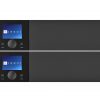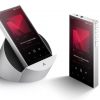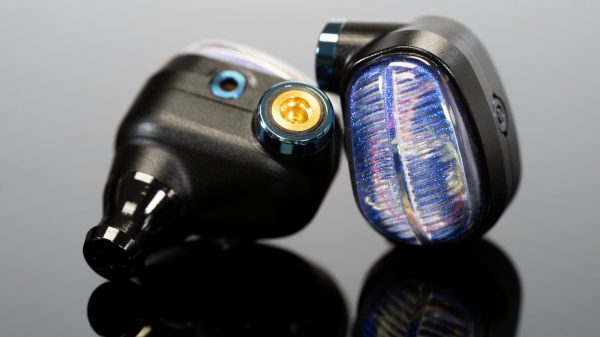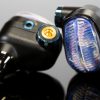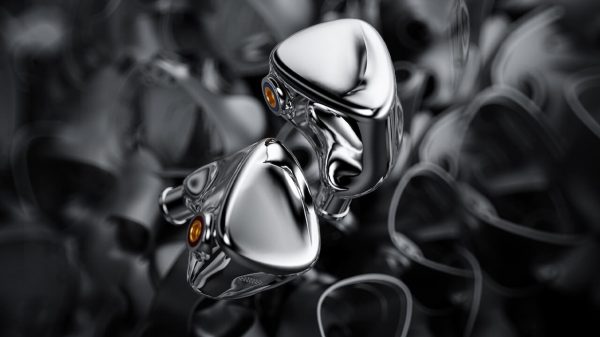Founded in 1959 in Colorado, Westone Audio has been an integral part of the earphone and hearing aid industry for almost 65 years. The company was sold to Lucid Audio in 2020 and continues to manufacture some of the best custom and universal IEMs in the industry; throughout the 1980s, the manufacturer developed balanced armature drivers in custom earpieces for musicians and “Walkman” style earbuds.
Their early research created the first custom in-ear monitors in collaboration with artists such as Rush and Def Leppard.
There is a long list of professional musicians who have used or owned a pair of Westone IEMs at some point in their career; the original Shure E1 and E5 IEMs were designed and manufactured by Westone and the first UE products were co-developed with Westone during Jerry Harvey’s tenure.
Aerosmith, Metallica, ZZ Top, Darrius Rucker, Joan Baez, and dozens of other famous artists across every genre of music have used Westone IEMs and there is no question that they build a quality product for the pro audio category.
But what about the consumer audio world?
Over the years, I have owned several pairs of Westone IEMs and have found them to be well made, reliable, and rather good sonically. When first introduced to the brand, they only offered three different series of IEMs. The ‘W’ series were aimed at the audiophile IEM customer and did share some similar design cues to the aforementioned Shure E5 model.
The ‘UM’ series were universal IEMs engineered for musicians who wanted a more linear tonal balance and superior isolation.
For those who wanted a custom pair of IEMs, Westone Audio introduced the ‘ES’ series and each model was custom modeled to your ear for a perfect fit and maximum isolation.
Regardless of series, the models were defined by the category and number of drivers inside the shell; the top Westone models featured 5 or 8 drivers per earpiece, whilst the entry-level models would only offer a single driver.

The Next Generation
Following the acquisition in 2020, the decision was made to rebrand the entire lineup; the ‘UM’ series became the Pro X and AM Pro X models, whilst the ‘W’ became the Mach series which we have under review.
The Pro X and AM Pro X were created to differentiate between the sealed models and those with ambient sound technology.
The Mach series took slightly longer to get to market because they represented a complete redesign of every element in the products; earshell, drivers, crossover, wiring, and the sonic signature.
Jason Kidd, President & COO, Westone Audio introduced the Mach Series saying “The MACH Series product combines over 35 years of engineering experience and tens of thousands of performance hours to capture this unique and true sound. These sound signatures were previously offered exclusively in our professional custom in ear monitors, but now can be experienced by every listener.”
The Mach 70 at $1,399 USD (and you can find them on sale for $999 right now) are certainly on the higher end of the price spectrum for most people and not without some strong competition.
After reading Kidd’s explanation of the Mach 70, we decided to request a review pair and see if the hype was warranted.

What’s in the Box?
Having reviewed a few dozen earbuds and IEMs over the past 12 months, we have noticed that some manufacturers clearly understand the importance of supplying everything you might need in the kit and that some only provide the bare minimum.
At $1,400 USD, one would hope that Westone would supply everything and the kitchen sink and they did not disappoint with the Mach 70. It would not be overstating it to claim that Westone has created a new standard for IEMs that others really need to emulate.

Opening the excellent packaging reveals a genuine Pelican case with everything stored away in custom foam trays. The trays have cut-outs for the ear pieces, cable, supplied ear tips, cleaning tool, registration card, cloth carry bag for those who may want to keep these clean inside a laptop bag or pocket, and a carabineer.
Those who bemoan the standard ear tips that are supplied with most IEMs will be please to know that Westone have supplied ten pairs of tips in two different styles; both the foam and silicone tips feature the same elongated shape (which was patented by Westone) for improved comfort and a better seal than standard tips.
Nozzles on the Mach series feature a narrow diameter so tip rolling will require the narrow-bore tips sold by Shure, Dekoni, Spinfit, and Comply in addition to the provided tips in the case.


Technology
The Mach 70 feature 7 drivers per ear piece including a singe low frequency driver, two midrange drivers, and 4 balanced armature tweeters; all of that is controlled by a three-way passive crossover.
Westone are not known to divulge details about driver construction but based on my conversation with them, all of the drivers utilized in the Mach 70 are custom designs made specifically for this IEM and any comparison to off-the-shelf drivers in this case would not relevant.
The Mach 70 offer a frequency range of 5Hz to 22kHz with a 110dB sensitivity rating and nominal impedance of 42 ohms; before you get too excited that the high sensitivity rating means that these IEMs are very easy to drive — reality was a very different experience.
If you are spending $1,400 on a pair of IEMs, you are most likely using a Dongle DAC with an Android smartphone or iPhone, or a high-end DAP and already know that these IEMs require a lot more power to justify their extremely high asking price.
That proved to be the prudent course of action with the Mach 70 which benefitted enormously from the Astell&Kern KANN MAX and FiiO M11Plus DAPs; a number of Dongle DACs actually struggled to get the Mach 70 working at full throttle but we can report very solid results with the Cayin RU7 and Questyle M15.
If you are planning on driving the Westone Mach 70 with a Dongle DAC, just know that the aforementioned options were excellent benchmarks for what is likely to work.

Sound
Right out of the box, the Mach 70 demonstrated some additional emphasis in the bass range around 180Hz; there was a gradual taper on either side of that but it did not mask the fact that the IEMs are not completely linear in that range.
The extreme sub bass range has rather good impact and definition but we did notice that it started to roll-off around 20Hz. The aforementioned mid-bass features some additional emphasis and whilst it is slightly warmer and thicker sounding, it still features a lot of discernible texture and detail.
Overall, the additional emphasis in the mid-bass actually solves an issue that I have with armature drivers; the additional coloration helps shed some of the “plasticity” that can be present in the overall sound and the end result comes across as being more realistic sounding.
During the review, I borrowed a pair of Westone Mach 80 IEMs (to see if the additional bass driver caused it to have even greater bass emphasis; the reality was that the exact opposite was true.
The Mach 70 delivers greater bass impact and definition and certainly drew me into the music in a very different way. The Mach 80 offers a more neutral sounding tuning and presentation that some might find less engaging.

The Midrange
The lower midrange is extremely cleaning sounding with no discernible bleed from the upper bass range. Male vocals have very good note weight and just enough warmth to create an organic sounding presentation. That also worked rather well with the cello; chamber pieces never came across as too thin sounding and that additional emphasis did not obscure detail either.
As you move up the range, lower strings exhibit some coloration that some might feel smooths over the presentation, but it was really recording dependent.
Guitar tracks exhibit just enough edge and distortion to come across as realistic sounding and without detail being smoothed over to the point that presence takes a backseat to the warmer tonal balance.
I went back and listened to specific tracks multiple times with different DAPs and Dongle DACs to make sure that the Mach 70 wasn’t smothering detail whilst offering a really pleasant sounding midrange.
The upper midrange offers some additional emphasis; female vocals are pushed slightly forward of the instrumentation compared to their male counterparts but it’s also not in your face and nor did it sound artificial. Better recordings with a lot of midrange resolution will not get shortchanged in this range and it’s a strength of the IEMs overall.
Detail retrieval is present but the overall presentation is rather fluid and polite sounding. These are not IEMs that will reach out and punch you in the face with too much presence or detail.

Treble
There is a mild emphasis in the lower treble that helps give percussion good snap and cymbals enough energy to avoid sounding dull; hi-hat strikes are well rendered without sounding metallic or overly aggressive in the mix.
After some initial elevation, the treble ranges drops back and remains rather even with the midrange; depending on the source, the treble can also take a slight step behind the midrange but remains rather detailed sounding, albeit somewhat polite in its overall presentation.
The treble performance will not offend those who are leery of an aggressive sounding top end, but it also won’t excite those who desire an abundance of top end energy and presence.
There is an “airy” quality to the treble with better recordings and sources and that certainly helps with the soundstage width and spaciousness of the sound.
Soundstage

The soundstage performance was better than expected; especially because most closed IEMs struggle to reproduce a lot of soundstage depth and width outside of your head.
The Mach 70’s soundstage depth was quite impressive; there was greater depth than height or width with most recordings but the overall sensation was a welcome development.
Seating the orchestra was rather easy as a result of the combination of stage size and instrument separation with the resulting seating chart being slightly narrower and deeper; which some will say is not entirely accurate. That’s a legitimate criticism but with zero gaps or overlapping of instruments — not a major issue with the vast majority of recordings.
Imaging is precise as well with movements easily placed and tracked and locations tightly defined.
Balanced armatures often struggle with compression when recordings become very complex and there are significant dynamic shifts; the Mach 70 had zero difficulty with large orchestral pieces or electronic music with frequent speed changes.


Conclusion
When you are spending $1,399 retail on a pair of IEMs, it is not unreasonable to expect a “reference” quality tuning that is extremely linear sounding, detailed, and very spacious within the inherent limitations of a closed-back IEM.
The Westone Mach 70 offer a more fluid, organic, and saturated presentation that emphasizes tone and presence; the midrange and treble are lively without being too far forward and there is just enough detail on the top end to keep these from being too polite.
Some might find these to be polite and that’s not the worst thing in the world with a closed-back IEM; especially if you are going to enjoy longer listening sessions with more forward sounding Dongle DACs or DAPs.
Are they detail monsters? Not really.
The build quality, comfort level, passive isolation, and superb accessories are what you should expect at the price, so it really comes down to the presentation and overall tonal balance.
For some listeners, the Westone Mach 70 will be excellent long-term IEMs but only if you use the appropriate Dongle DAC or DAP.
Where to buy: $999 at Amazon









